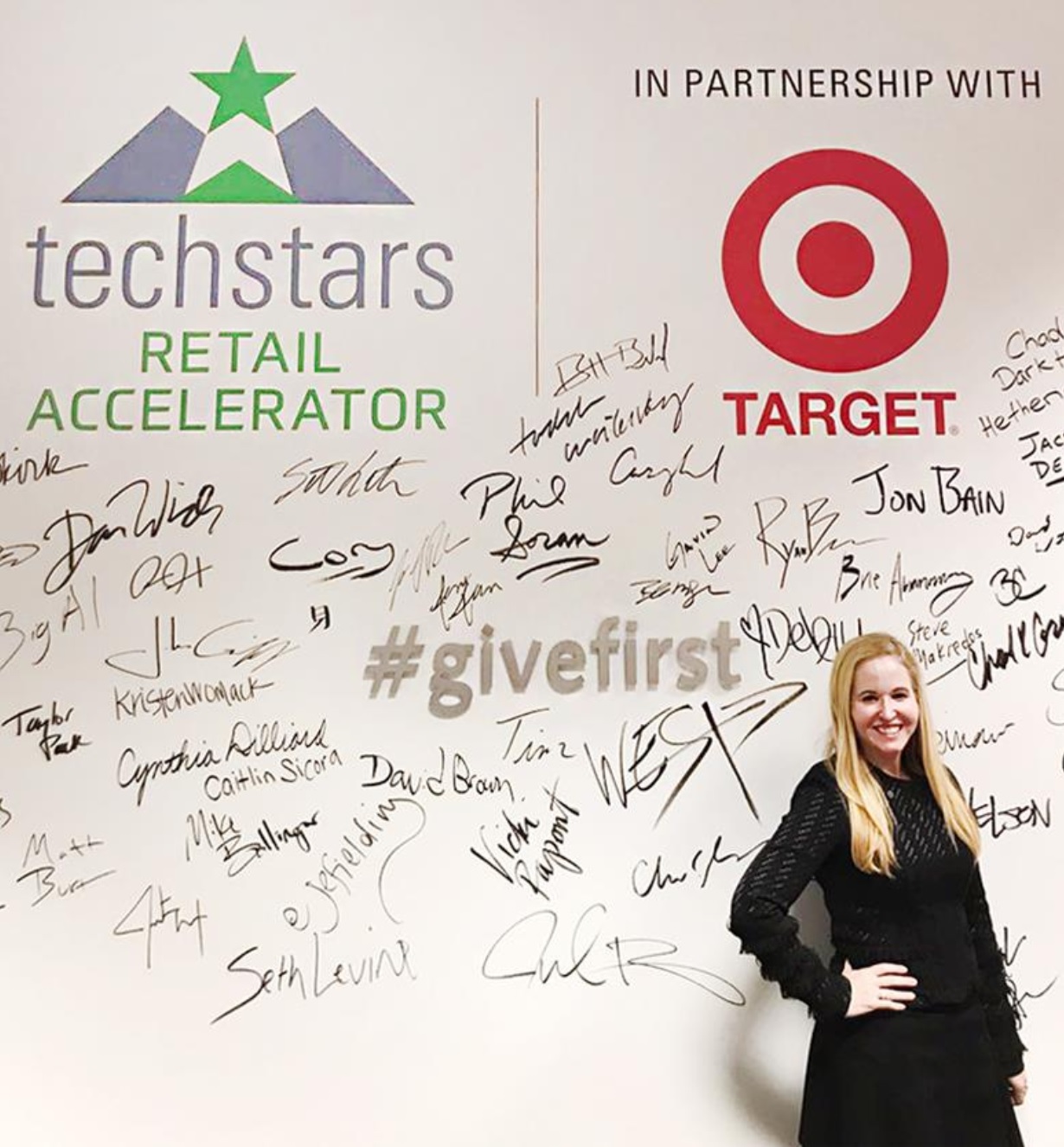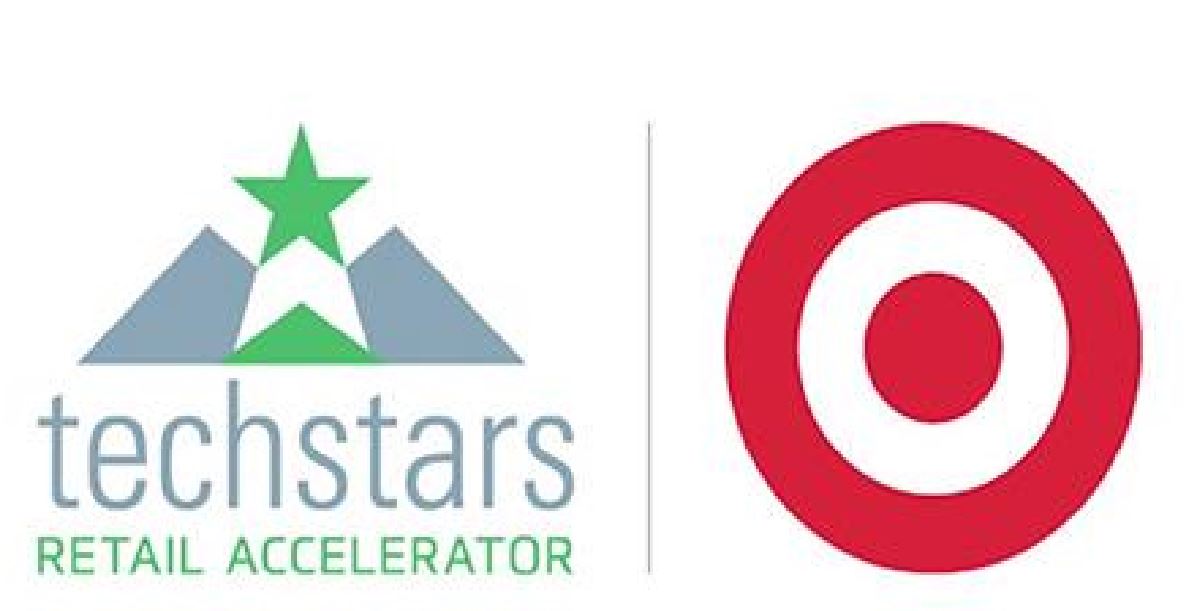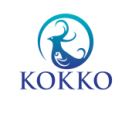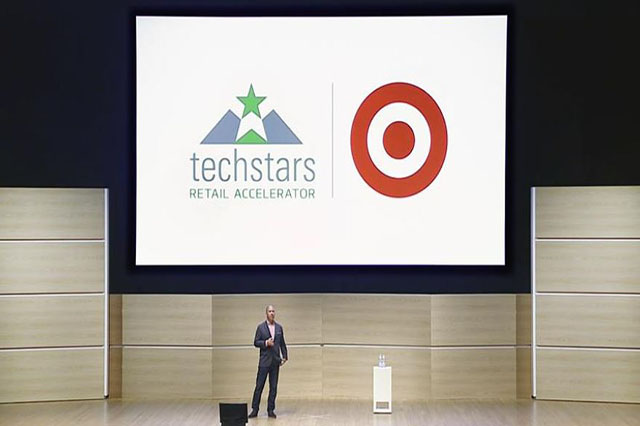Target Welcomes New Class to Retail Accelerator Program
The Target + Techstars retail accelerator program is welcoming its second batch of startups to Target’s headquarters in Minneapolis, MN. After receiving applications from more than 3,000 retail-specific tech startups from across the globe, Target selected 10 finalists to participate in this year’s 13-week program. Deborah Weinswig, Managing Director of FGRT, was in Minneapolis for the program launch and will serve as a mentor to the accelerator program.

Source: FGRT
The participating companies offer solutions that range from online advertising to clothing alterations to meal kit delivery.While on-site at Target headquarters, these 10 early-stage startups will have access to more than 120 mentors, ranging from Target executives to local entrepreneurs and business leaders, who will provide feedback, answer questions and offer advice to foster the startups’ growth and development.
Of the participating mentors, 50 are Target executives at the VP level or above. TargetCEO Brian Cornell, Chief Merchandising Officer Mark Tritton and Chief Human Resources Officer Stephanie Lundquist will all provide mentorship to the startups. Other mentors include entrepreneurs and business executives from major retailers such as Best Buy and Disney.
This year’s group of participating startups is more diverse than last year’s group: two of the companies are head quartered in India and one is headquartered in Belgium. In addition, 70% of this year’s applicants to the program have either a female or a racially diverse founder, according to Ryan Broshar, Managing Director of Techstars Retail. This year’s participating startups are Air Tailor, Bybe, Find Me a Shoe, Kokko, Local Crate, Savitude, Shopturn, SpotCrowd, StoryXpress and Upsie.
Like last year’s inaugural program, Target’s 2017 accelerator is run in collaboration with Techstars. Techstars is a global, mentorship-driven accelerator that offers startups hands-on guidance and support during three-month programs. The program will conclude with a Demo Day in October at which the participating startups will present their work to an audience of Target team members and the greater tech community.

Source: Corporate.Target.com
The results from the 2016 Target + Techstars retail accelerator program were positive, according to Target. The participating startups collectively raised more than $30 million following the program, which was more than the graduates of any other previous Techstars program had raised. In addition, and eight of the 10 companies went on to work with Target on pilot programs or in some other capacity. Target detailed the progress of some of the startups from its first class, and said that it had made an initial investment in one of them, Inspectorio, a company dedicated to quality inspections for textiles and consumer goods in Asia and South America.Target also rolled out a 130-store pilot program in January for a shift-scheduling and communications app for hourly workers called Branch, which had also been part of its inaugural class of startups.
With retail undergoing a transitional period and many retailers struggling to engage with customers in new ways, working with startups can be an important tool in terms of driving innovation. Many companies have adopted an open innovation strategy, turning to corporate accelerators and innovation labs to cultivate businesses that have the potential to disrupt the industry.Last year, Amazon announced a $100 million fund called the Alexa Accelerator to fuel voice technology innovation and Walmart announced a new internal venture arm dubbed Store No. 8 that is designed to identify emerging technologies and e-commerce partners.
Target + Techstars Second Wave of Startups
The following10 startups will join the Target + Techstars second wave:
 1. Air Tailor:
1. Air Tailor: Shoppers often find visiting tailors inconvenient due to the difficulty of locating quality providers and unclear pricing and timelines. For fashion retailers, a sizeable quantity of returns are based on poor fit, and many stores struggle to manage tailors.
Air Tailor is an on-demand clothing alterations and repair platform for retailers and consumers. The company partners with retailers to provide them with an extensive network of tailors and an order management system, which can prevent shoppers from needing to have an in-person fitting.
Shoppers who need a garment tailored receive a prepaid shipping label and can either send an additional sample article of clothing to the tailor (for reference) or follow visual instructions provided by Air Tailor on where to place safety pins on the garment that needs to be altered. Air Tailor is currently working on a four-store pilot with Burberry and is in talks with several other major retailers.
 2. Bybe:
2. Bybe: This company simplifies digital alcohol promotions for retailers by incorporating rebates, rewards and coupons for beer, wine and spirits directly into retailers’ apps. Alcohol is one of the largest revenue drivers in retail, but it is still missing from coupon categories inside many retail apps. Promoting alcohol in retail apps is a complicated process due to high levels of regulation and restrictions that vary from state to state.
 3. Find Me a Shoe:
3. Find Me a Shoe: A startup from Target’s India Accelerator program, Find Me a Shoe offers a virtual fitting service for online and offline footwear retailers. The footwear recommendation app helps users find the best-fitting shoe for them. Consumers can register by creating an initial digital foot profile. Once registered, they can try footwear models virtually using the fitting service at FindMeaShoe.com or at partnering retailers.
 4. Kokko:
4. Kokko: For many brands that sell items where color accuracy matters, there are challenges in driving purchase. Kokko seeks to solve the problem of finding the right colors for one’s personal skin tone when shopping for cosmetics online. When integrated into a company’s beauty mobile app, Kokko’s color-matching technology acts as a shopper’s personal makeup advisor. A user takes a selfie with Kokko’s skin-color-matching chart (sent in the mail) and receives a list of suitable foundations from varying brands at varying price points.Featured brands include MAC, Bobbi Brown, Sephora and L’Oréal Paris.
 5
5.
Local Crate: Despite retention problems, meal kit delivery companies are still finding new customers, and consumer spending on meal kit services increased by more than 200% from 2015 to 2016. Customers like the convenience of having premeasured ingredients provided in the package, as it frees them from needing to check what is already in the pantry, stop at the grocery store and dig through cookbooks for recipes.
Minneapolis-based Local Crate provides weekly meal kits with recipes and preportioned, locally sourced ingredients. Customers select a minimum of two meals—each including two servings—for an average of $27 per meal. Local Crate has partnered with several farmers and producers, chefs, and restaurants as well as with charitable organizations that provide hunger relief.
 6. Savitude:
6. Savitude: Unless shoppers already own and know their size in a particular brand, buying clothes online can be difficult. Shoppers often buy two sizes and return one, resulting in high shipping and return costs for retailers.
Savitude offers software-as-a-service recommendation technology that resides on retailers’ websites and is designed to guide potential buyers to clothes that will fit them well. Shoppers answer a series of questions paired with interactive images, such as “Which of these images most resembles your shoulders?” to help categorize their body shape. Savitude then customizes an inventory of clothes designed to work with the shopper’s body type. The startup uses visual recognition technology from IBM Watson to analyze a retailer’s inventory and categorize the clothes into categories.
 7. ShopTurn:
7. ShopTurn: Returning items to brick-and-mortar retailers can often be a struggle, as shoppers have to deal with traveling long distances, finding parking, waiting in line and accommodating inconvenient store hours.
In an effort to improve the return process, ShopTurn has created an on-demand return service that enables shoppers to return items to brick-and-mortar retailers directly from their home. Users scan their item receipt and tag with the ShopTurn mobile app. Then, a driver is sent to the user’s location to pick up the items and process the refund immediately. The items are taken to a ShopTurn transfer location and then returned to their respective stores. Retailers receive several benefits from the service: it allows them to convert returns to store credit, encourage customers to buy a larger quantity of items, and decrease the time it takes to restock and resell returned items. The company is currently in beta testing.
 8. SpotCrowd:
8. SpotCrowd: Shoplifting costs US retailers $75 billion a year, as well as a good deal of unproductive time. New York–based SpotCrowd provides a machine learning–based online security platform that connects existing retail security cameras to the Internet so everyone can join as “spotters.”Spotters swipe through thousands of streams, earning money by detecting shoplifters. Users choose real-time footage from retailers to watch for potential shoplifters. The gamified experience offers anyone with some spare time and Internet access the opportunity to become a spotter.
 9. StoryXpress:
9. StoryXpress: Headquartered in India, StoryXpress is a cloud-based video creation tool aimed at helping retailers convert images, text and video clips into promotional video ads in order to boost engagement and visibility. Users can upload video clips, images and text, then use StoryXpress tools and templates to create a video in minutes. The company offers an API that can be integrated into any platform to automate the video creation process as well as a business-to-consumer web app targeted to small and medium-sized businesses.
According to StoryXpress cofounder Ankit Mishra, big brands spend $10,000 and six weeks, on average, producing a motion picture promotional video. StoryXpress is providing an option to create a brand or product video for $15 in 15 minutes.The company has been experimenting with 30-second personalized product videos at Target.
 10. Upsie:
10. Upsie: This startup offers warranties with the same coverage as retailers’ warranties, but at a more affordable price. Insurance carriers provide warranty products to retailers, which then often add an upcharge with minimal transparency for the customer. Minneapolis-based Upsie offers an app and website that enable shoppers to digitally buy warranties for their electronics, accessories and appliances.
Part of Upsie’s goal is to educate consumers, many of whom are pressured to make on-the-spot warranty purchases but are unaware that retailers often mark them up significantly. By way of comparison, Best Buy provides two-year smartphone protection for $199.99 and Verizon Communications for $264, but Upsie provides coverage for just $79.99.



 1. Air Tailor: Shoppers often find visiting tailors inconvenient due to the difficulty of locating quality providers and unclear pricing and timelines. For fashion retailers, a sizeable quantity of returns are based on poor fit, and many stores struggle to manage tailors.
Air Tailor is an on-demand clothing alterations and repair platform for retailers and consumers. The company partners with retailers to provide them with an extensive network of tailors and an order management system, which can prevent shoppers from needing to have an in-person fitting.
Shoppers who need a garment tailored receive a prepaid shipping label and can either send an additional sample article of clothing to the tailor (for reference) or follow visual instructions provided by Air Tailor on where to place safety pins on the garment that needs to be altered. Air Tailor is currently working on a four-store pilot with Burberry and is in talks with several other major retailers.
1. Air Tailor: Shoppers often find visiting tailors inconvenient due to the difficulty of locating quality providers and unclear pricing and timelines. For fashion retailers, a sizeable quantity of returns are based on poor fit, and many stores struggle to manage tailors.
Air Tailor is an on-demand clothing alterations and repair platform for retailers and consumers. The company partners with retailers to provide them with an extensive network of tailors and an order management system, which can prevent shoppers from needing to have an in-person fitting.
Shoppers who need a garment tailored receive a prepaid shipping label and can either send an additional sample article of clothing to the tailor (for reference) or follow visual instructions provided by Air Tailor on where to place safety pins on the garment that needs to be altered. Air Tailor is currently working on a four-store pilot with Burberry and is in talks with several other major retailers.
 2. Bybe: This company simplifies digital alcohol promotions for retailers by incorporating rebates, rewards and coupons for beer, wine and spirits directly into retailers’ apps. Alcohol is one of the largest revenue drivers in retail, but it is still missing from coupon categories inside many retail apps. Promoting alcohol in retail apps is a complicated process due to high levels of regulation and restrictions that vary from state to state.
2. Bybe: This company simplifies digital alcohol promotions for retailers by incorporating rebates, rewards and coupons for beer, wine and spirits directly into retailers’ apps. Alcohol is one of the largest revenue drivers in retail, but it is still missing from coupon categories inside many retail apps. Promoting alcohol in retail apps is a complicated process due to high levels of regulation and restrictions that vary from state to state.
 3. Find Me a Shoe: A startup from Target’s India Accelerator program, Find Me a Shoe offers a virtual fitting service for online and offline footwear retailers. The footwear recommendation app helps users find the best-fitting shoe for them. Consumers can register by creating an initial digital foot profile. Once registered, they can try footwear models virtually using the fitting service at FindMeaShoe.com or at partnering retailers.
3. Find Me a Shoe: A startup from Target’s India Accelerator program, Find Me a Shoe offers a virtual fitting service for online and offline footwear retailers. The footwear recommendation app helps users find the best-fitting shoe for them. Consumers can register by creating an initial digital foot profile. Once registered, they can try footwear models virtually using the fitting service at FindMeaShoe.com or at partnering retailers.
 4. Kokko: For many brands that sell items where color accuracy matters, there are challenges in driving purchase. Kokko seeks to solve the problem of finding the right colors for one’s personal skin tone when shopping for cosmetics online. When integrated into a company’s beauty mobile app, Kokko’s color-matching technology acts as a shopper’s personal makeup advisor. A user takes a selfie with Kokko’s skin-color-matching chart (sent in the mail) and receives a list of suitable foundations from varying brands at varying price points.Featured brands include MAC, Bobbi Brown, Sephora and L’Oréal Paris.
4. Kokko: For many brands that sell items where color accuracy matters, there are challenges in driving purchase. Kokko seeks to solve the problem of finding the right colors for one’s personal skin tone when shopping for cosmetics online. When integrated into a company’s beauty mobile app, Kokko’s color-matching technology acts as a shopper’s personal makeup advisor. A user takes a selfie with Kokko’s skin-color-matching chart (sent in the mail) and receives a list of suitable foundations from varying brands at varying price points.Featured brands include MAC, Bobbi Brown, Sephora and L’Oréal Paris.
 5. Local Crate: Despite retention problems, meal kit delivery companies are still finding new customers, and consumer spending on meal kit services increased by more than 200% from 2015 to 2016. Customers like the convenience of having premeasured ingredients provided in the package, as it frees them from needing to check what is already in the pantry, stop at the grocery store and dig through cookbooks for recipes.
Minneapolis-based Local Crate provides weekly meal kits with recipes and preportioned, locally sourced ingredients. Customers select a minimum of two meals—each including two servings—for an average of $27 per meal. Local Crate has partnered with several farmers and producers, chefs, and restaurants as well as with charitable organizations that provide hunger relief.
5. Local Crate: Despite retention problems, meal kit delivery companies are still finding new customers, and consumer spending on meal kit services increased by more than 200% from 2015 to 2016. Customers like the convenience of having premeasured ingredients provided in the package, as it frees them from needing to check what is already in the pantry, stop at the grocery store and dig through cookbooks for recipes.
Minneapolis-based Local Crate provides weekly meal kits with recipes and preportioned, locally sourced ingredients. Customers select a minimum of two meals—each including two servings—for an average of $27 per meal. Local Crate has partnered with several farmers and producers, chefs, and restaurants as well as with charitable organizations that provide hunger relief.
 6. Savitude: Unless shoppers already own and know their size in a particular brand, buying clothes online can be difficult. Shoppers often buy two sizes and return one, resulting in high shipping and return costs for retailers.
Savitude offers software-as-a-service recommendation technology that resides on retailers’ websites and is designed to guide potential buyers to clothes that will fit them well. Shoppers answer a series of questions paired with interactive images, such as “Which of these images most resembles your shoulders?” to help categorize their body shape. Savitude then customizes an inventory of clothes designed to work with the shopper’s body type. The startup uses visual recognition technology from IBM Watson to analyze a retailer’s inventory and categorize the clothes into categories.
6. Savitude: Unless shoppers already own and know their size in a particular brand, buying clothes online can be difficult. Shoppers often buy two sizes and return one, resulting in high shipping and return costs for retailers.
Savitude offers software-as-a-service recommendation technology that resides on retailers’ websites and is designed to guide potential buyers to clothes that will fit them well. Shoppers answer a series of questions paired with interactive images, such as “Which of these images most resembles your shoulders?” to help categorize their body shape. Savitude then customizes an inventory of clothes designed to work with the shopper’s body type. The startup uses visual recognition technology from IBM Watson to analyze a retailer’s inventory and categorize the clothes into categories.
 7. ShopTurn: Returning items to brick-and-mortar retailers can often be a struggle, as shoppers have to deal with traveling long distances, finding parking, waiting in line and accommodating inconvenient store hours.
In an effort to improve the return process, ShopTurn has created an on-demand return service that enables shoppers to return items to brick-and-mortar retailers directly from their home. Users scan their item receipt and tag with the ShopTurn mobile app. Then, a driver is sent to the user’s location to pick up the items and process the refund immediately. The items are taken to a ShopTurn transfer location and then returned to their respective stores. Retailers receive several benefits from the service: it allows them to convert returns to store credit, encourage customers to buy a larger quantity of items, and decrease the time it takes to restock and resell returned items. The company is currently in beta testing.
7. ShopTurn: Returning items to brick-and-mortar retailers can often be a struggle, as shoppers have to deal with traveling long distances, finding parking, waiting in line and accommodating inconvenient store hours.
In an effort to improve the return process, ShopTurn has created an on-demand return service that enables shoppers to return items to brick-and-mortar retailers directly from their home. Users scan their item receipt and tag with the ShopTurn mobile app. Then, a driver is sent to the user’s location to pick up the items and process the refund immediately. The items are taken to a ShopTurn transfer location and then returned to their respective stores. Retailers receive several benefits from the service: it allows them to convert returns to store credit, encourage customers to buy a larger quantity of items, and decrease the time it takes to restock and resell returned items. The company is currently in beta testing.
 8. SpotCrowd: Shoplifting costs US retailers $75 billion a year, as well as a good deal of unproductive time. New York–based SpotCrowd provides a machine learning–based online security platform that connects existing retail security cameras to the Internet so everyone can join as “spotters.”Spotters swipe through thousands of streams, earning money by detecting shoplifters. Users choose real-time footage from retailers to watch for potential shoplifters. The gamified experience offers anyone with some spare time and Internet access the opportunity to become a spotter.
8. SpotCrowd: Shoplifting costs US retailers $75 billion a year, as well as a good deal of unproductive time. New York–based SpotCrowd provides a machine learning–based online security platform that connects existing retail security cameras to the Internet so everyone can join as “spotters.”Spotters swipe through thousands of streams, earning money by detecting shoplifters. Users choose real-time footage from retailers to watch for potential shoplifters. The gamified experience offers anyone with some spare time and Internet access the opportunity to become a spotter.
 9. StoryXpress: Headquartered in India, StoryXpress is a cloud-based video creation tool aimed at helping retailers convert images, text and video clips into promotional video ads in order to boost engagement and visibility. Users can upload video clips, images and text, then use StoryXpress tools and templates to create a video in minutes. The company offers an API that can be integrated into any platform to automate the video creation process as well as a business-to-consumer web app targeted to small and medium-sized businesses.
According to StoryXpress cofounder Ankit Mishra, big brands spend $10,000 and six weeks, on average, producing a motion picture promotional video. StoryXpress is providing an option to create a brand or product video for $15 in 15 minutes.The company has been experimenting with 30-second personalized product videos at Target.
9. StoryXpress: Headquartered in India, StoryXpress is a cloud-based video creation tool aimed at helping retailers convert images, text and video clips into promotional video ads in order to boost engagement and visibility. Users can upload video clips, images and text, then use StoryXpress tools and templates to create a video in minutes. The company offers an API that can be integrated into any platform to automate the video creation process as well as a business-to-consumer web app targeted to small and medium-sized businesses.
According to StoryXpress cofounder Ankit Mishra, big brands spend $10,000 and six weeks, on average, producing a motion picture promotional video. StoryXpress is providing an option to create a brand or product video for $15 in 15 minutes.The company has been experimenting with 30-second personalized product videos at Target.
 10. Upsie: This startup offers warranties with the same coverage as retailers’ warranties, but at a more affordable price. Insurance carriers provide warranty products to retailers, which then often add an upcharge with minimal transparency for the customer. Minneapolis-based Upsie offers an app and website that enable shoppers to digitally buy warranties for their electronics, accessories and appliances.
Part of Upsie’s goal is to educate consumers, many of whom are pressured to make on-the-spot warranty purchases but are unaware that retailers often mark them up significantly. By way of comparison, Best Buy provides two-year smartphone protection for $199.99 and Verizon Communications for $264, but Upsie provides coverage for just $79.99.
10. Upsie: This startup offers warranties with the same coverage as retailers’ warranties, but at a more affordable price. Insurance carriers provide warranty products to retailers, which then often add an upcharge with minimal transparency for the customer. Minneapolis-based Upsie offers an app and website that enable shoppers to digitally buy warranties for their electronics, accessories and appliances.
Part of Upsie’s goal is to educate consumers, many of whom are pressured to make on-the-spot warranty purchases but are unaware that retailers often mark them up significantly. By way of comparison, Best Buy provides two-year smartphone protection for $199.99 and Verizon Communications for $264, but Upsie provides coverage for just $79.99.